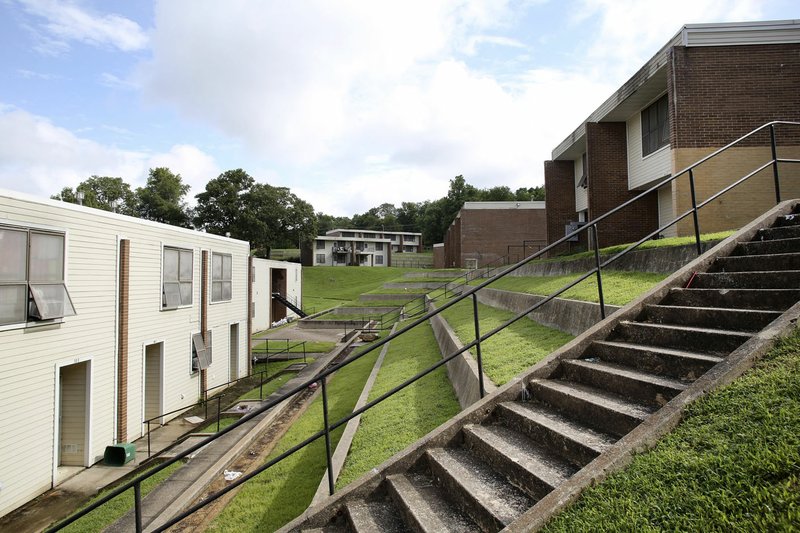FAYETTEVILLE -- Housing Authority officials say a plan to expand a public housing complex will continue despite state denial of the project's main source of revenue.
The Housing Authority sought a tax credit that would have paved the way for an expansion at Morgan Manor, 324 E. 12th Place. Residents at the 40-unit public housing complex Willow Heights, 10 S. Willow Ave., would move to the expansion. Morgan Manor has 52 units and the expansion would add 58.
Morgan Manor is operated under a form of Section 8 called the Rental Assistance Demonstration program, which combines public and private equity to provide financial assistance to low-income renters.
The Arkansas Development Finance Authority on Thursday announced the recipients of $7.1 million in housing tax credits. Morgan Manor II wasn't among the 13 projects.
Thirty-four applicants requested more than $19 million this year, according to Derrick Rose, authority spokesman. Morgan Manor simply didn't score high enough to gain approval, he said.
"With the limited number of credits available, the application process is extremely competitive," Rose said.
The credits, which are committed annually for a 10-year period, plus the sale of the Willow Heights land for $1.25 million, were supposed to be the two main pieces of the financial pie to build the Morgan Manor expansion. The Housing Authority applied for $625,000.
It also applied for a $1.5 million loan from the federal HOME Investment Partnership Program which it also will not receive. The Development Finance Authority doled out about $3.4 million in those loans this year.
The estimated cost of the entire expansion project is $8 million. Now, the Housing Authority will have to explore other options if it wants to move residents out of Willow Heights.
"At this point it's stalled. I'd hate to say 'dead,'" Executive Director Deniece Smiley said. "I would say at this point it's definitely a huge bump in the road and now we have to refigure what we're going to do."
The Housing Authority's public charity status enables it to seek sources of revenue other than rent from tenants and what the U.S. Department of Housing and Urban Development provides.
What those sources are is yet to be determined, said Mike Emery, the authority's board chairman.
"We still need to see what all our options are," he said.
The plan to move the tenants from Willow Heights has been a source of controversy this summer. In public meetings and online, neighbors or otherwise concerned residents criticized condensing low-income people into one housing project, a lack of engagement with tenants and how the Housing Authority has handled the process.
"While I have great respect for how much work goes into these proposals, I think the denial is ultimately a good thing," said Melissa Terry, a resident who lives near Morgan Manor. "Maybe now the public housing residents and our community can be more actively engaged in future options and opportunities for our low income neighbors."
Housing Authority officials have explained vast repairs are needed at Willow Heights, the buildings are out of compliance with modern-day standards and the hilly terrain causes flooding and safety issues. Waning money from the federal government has pushed Housing Authority officials to pursue other financial methods. The Housing Authority's capital fund budget was $239,360 last year. It was awarded $184,391 this year but hasn't yet received the money from HUD.
A development plan for the expansion passed the Planning Commission on Monday. Smiley said the Housing Authority does not intend to withdraw the plan. HUD requires a financial plan be submitted by Feb. 5.
Mayor Lioneld Jordan, in a letter dated Aug. 9 to the Arkansas Development Finance Authority, rescinded prior support of the project. Jordan said he had heard from several residents the project isn't in the best interest of the tenants. Jordan added he doesn't support the transition of public housing to a private entity.
"The manner in which this project has unfolded in Fayetteville does not have the support of our community," Jordan wrote. "I object to the process of the Fayetteville Housing Authority as I do not feel there has been adequate involvement from affected residents and surrounding community members."
NW News on 08/19/2017


